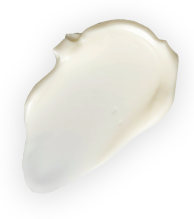Korean Skincare vs Western Skincare: What’s the Real Difference?
Korean skincare—often referred to as K-beauty—has taken over social media and beauty shelves around the world. But what truly sets Korean skincare apart from...
Learn MoreKorean skincare—often referred to as K-beauty—has taken over social media and beauty shelves around the world. But what truly sets Korean skincare apart from...
Learn MoreMushrooms have always carried a mystical allure, prized for centuries not just in culinary traditions, but also for their healing and medicinal properties. T...
Learn MoreSkincare has come a long way since the days of Nivea and Noxzema. Today, high-tech skincare is a true art form—from advanced formulations, to expert applicat...
Learn MoreIt’s time to have a serious conversation about menopause, menopausal skincare, and everything in between. Did you know that one-third of the American female ...
Learn MoreThe buzz around peptides is strong and for good reason. Peptides are powerful short chains of amino acids that are basically building blocks of proteins like...
Learn MoreWhile this can be a loaded question, I will try to give you some guidelines that can help your skin weather any storm, pun intended. If your skin care is cur...
Learn More“Slugging” is the latest skincare trend coating the internet, literally. The slimy name is quite fitting, as it entails coating your face with a petroleum-ba...
Learn MoreFirst and foremost, throw away all of your over the counter acne products, you will no longer need any of them and you shouldn’t even think of using them whi...
Learn MoreFor the past 25 years I have had hundreds of clients with light, moderate to severe acne come in to receive treatment. About 70% of them were successfully cu...
Learn MoreFor decades, the message has been clear: avoid the sun and slather on sunscreen to prevent premature aging and skin cancer. But have we taken this advice too...
Learn MoreWhile hyaluronic acid has certainly made its way as one of the top ingredients in today's skin care market, you might want to ask yourself, “What is this all...
Learn MoreWhile this can be a loaded question, I will try to give you some guidelines that can help your skin weather any storm, pun intended. If your skin care is cur...
Learn MoreAfter about a month of your “cult-favorite” skincare routine, you’ve noticed little to no changes, and your pricey products are already rearing their end. Is...
Learn MoreSign up for our exclusive emails & texts to stay in the know on all things skincare and so much more... And as a lil' extra treat, you'll get 15% off your first order!
Subscribe to our NewsletterHave you been thinking of adding this brightening serum to your skincare routine? Lactic acid is an Alpha-Hydroxy Acid (AHA) that multi-tasks to exfoliate an...
Learn MoreWhat a fun ride this was! On 2/22/22 we relaunched Lactic Acid after 20 years in existence. This is third-generation lactic acid and I could not be more prou...
Learn More Unlock 15% off your first order
Unlock 15% off your first order